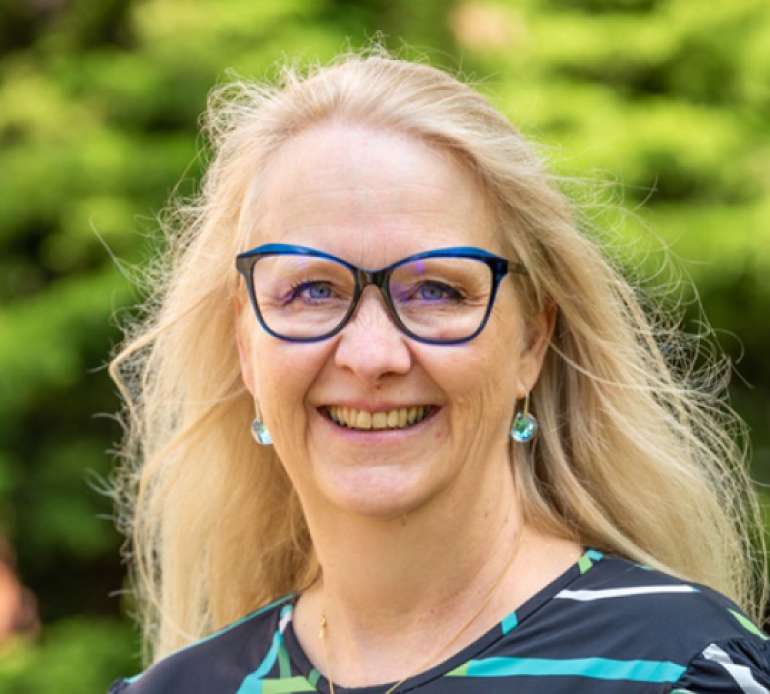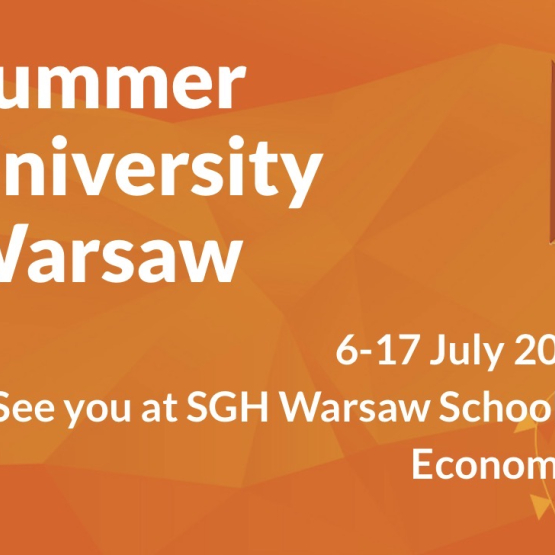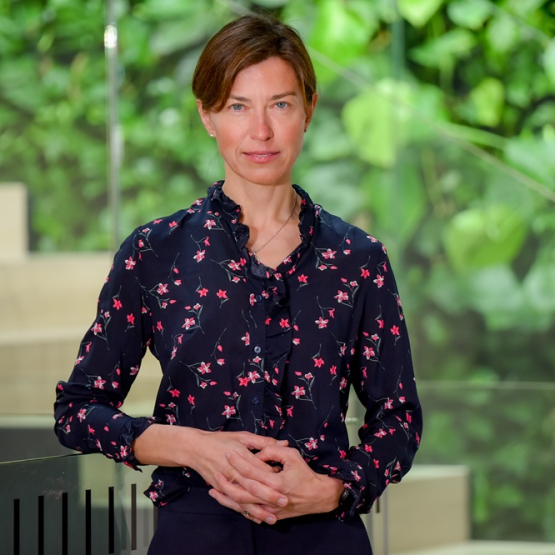Internationalisation is a mindset that facilitates institutional change at universities

An interview with Julia von Maltzan Pacheco, Associate Dean for Global Affairs at the Getulio Vargas Foundation’s School of Business Administration in Sao Paulo.
In all procedures of accreditation, the internationalisation strategy of studies is the main issue. What does this internationalisation mean in practical terms? And why it does matter in economic and executive education? How is the economic education in Brazil undergoing this process?
Internalisation is something already present in our lives. We use products made elsewhere, or at least partially processed in another country. We travel a lot, people work abroad, globalisation has taken place and is still underway. Currently the processes have slowed down, but they still underpin our lives. We do not travel abroad so often, due to the war in Ukraine and the post-pandemic situation, and we have been confronted for some time with the supply chains breakdowns and slower globalisation. However, our countries are interconnected physically and digitally.
From the point of view of university students, there is a permanent need to understand other people in other countries – culture wise, language wise, and, of course to understand the economic and business background. Therefore, internationalisation continues to prove extremely important as a system of references for young people on their way to becoming businesspeople, to successfully undertake business and to compete in international markets.
In practical terms for universities this means that they need to attract foreign students, PhD candidates and scholars. What is your experience in this field in case of GVF School of Business Administration?
Brazil, as a continental country, is a special case. We have been very much focused internally on ourselves, due to history. Brazil started industrialising with “import substitution” policies. Basically, we closed borders and kept out international competitors. To this day Brazil tends to look more inside than outward. We are a continental country with 220 million inhabitants, geographically the fifth largest country in the world. Therefore, it is very important for us to have international students in our school so that our students get to meet people from all around the world.
Obviously, we are a private school, so many of our students are able to travel abroad and have some contacts on their own. But we also have students without passports which means that they never have travelled abroad. It is crucial for them to meet foreigners and get exposed to other languages, cultures and other topics linked to internationalisation. The most important task in this field is to make these students realise that Brazil is not the only country in the world. We started already in the late 70s to develop international partnerships. We were then the fifth member, if I am not mistaken, of the PIM (Partnership in International Management).
In other words, we have always given much importance to the international part. Nowadays, we have two undergraduate programmes and two graduate programmes that are taught entirely in English. Half of our students enrolled in Master programmes are from other countries. Our MBA programme has about 20% foreign students. But it is still very difficult to attract students from abroad for undergraduate level studies.
We have successfully opened up a path with double-degree programmes. Some 30-40% of international students come as double degree students, which is still a small percentage, taking into consideration that we have approximately two thousand foreign undergraduate students. We would be happy with much higher numbers.
You have been invited by the SGH rector to become a member of the International Advisory Board for SGH. The first meeting of this IAB was held on June 13th where participants shared their experiences from Covid-19 and the lockdown. How it was in Sao Paolo? Brazil’s experience was very specific in 2021 as the third country in the world in terms of number of infections and the second highest as concerns deaths caused by Covid-19.
I think Covid-19 was a dramatic moment for everybody in the world and still, although less dramatic now. We started winding down activity on our campus down on March 16, 2020. I remember precisely because this is my birthday. We announced a one-week lockdown of the campus; everything was cancelled. After that we started online classes, which was very challenging for the faculty because many had never used online tools, but we offered our scholars special training and support.
Months later, on March 15-16, 2022, we went back for 100% courses in person, so for exactly two years we held of online classes. Administrative staff stayed away for almost two years too. It was very difficult. Almost everyone is happy we are back for real classes, though some students, especially those in master’s programmes would have preferred to stay online, as would some of our international students. Many of them started travelling around the South America and they have been telecommuting from Peru, Chile, Amazonia, from the seaside, from anywhere you can imagine. Obviously, they love to do that and would like to continue, but we are quite strict as concerns attendance. Now that we have commenced 100% in-person classes, participation in classes is mandatory.
What we have observed, and I guess this is not only Brazilian experience, is that students are less engaged and participate less in the classroom. Unfortunately, they are not very active right now.
Might that be a collateral effect of COVID-19 lockdowns and “keep 2 metres distance away” policies that they have experienced for nearly two years?
We believe that this is still a consequence of COVID-19. In our regular evaluations, and in a comparative perspective, we see that performance is down from previous years. We do realise that remote learning has not been a positive experience, and it is not only our conclusion. Colleagues around the world say the same. A big concern for us now is how to get back to what we call normality. We introduced and now offer counselling and psychological support for our students. Although eventually the psychological well-being of students has been gradually improving, the level of risk for remains relatively high. It is really a big concern for us.
There was also a lot of anxiety among students because of coming back and having exams in person. Even just being on campus or being surrounded by other students was already a source of heightened anxiety. This is something we have to work on in the nearest future, because it seems that this situation has not improved much.
Some pundits say that so-called “black swans” keep looming over Europe. Respectively, we have been dealing with COVID-19 consequences, runaway inflation, and the possibility of stagflation. Since February 2022 we also have been facing the war in Ukraine. How do these phenomena look from a Brazilian perspective? You are more distant, we are so close to the Ukrainian border, we are hosting so many refugees, that this war seems to be playing out in our backyard.
First of all, you should understand that Brazil is a country of immigrants. I would say almost every Brazilian has roots in Europe. There have been several big immigration waves from Europe, Poland included. Thus, there is a very strong connection with Europe. Brazilians love to travel to Europe as they like travelling to the United States. For this reason, Brazilians feel very much connected to what is going on and interested in information about the war in Ukraine, they are very concerned. They are also, if I can say so, very much empathetic towards Ukrainian people, but also with Poland and other countries receiving refugees. If you are going on taxi in Sao Paolo or Rio de Janeiro, you might be certain that the taxi driver will tell you that what’s happening in Ukraine is terrible. Although we are very distant, this awful war is quite present in our daily life. They talk a lot about Ukraine in the news. But of course, we do not have this possibility of meeting in person people displaced from the war zones as it happens in Warsaw, this is too far away.
I am German and my views are based on what I know from my family. My parents have lived through the war. They know what it means to hear the sirens and go to the underground station. The rest of my family is still living in Germany. My mother lived in Berlin in the 1940s, so war is still a vivid memory for her. Obviously, we are not as close as Poland to Ukraine, but some people feel it is not so far away and the unease of being close to a military conflict. They fear that it could explode further.
While Ukraine may not be present in the day-to-day thinking of most Brazilians, I am convinced that many people identify very much with the internal displacement and people losing their homes, something that they worked for their whole lives, and the loss of life experienced by Ukrainians. This dramatic change of one day having a normal life towards another without the roof above your head, when you lose your job and you are exposed to permanent danger, fearing for your own life and those of your beloved, I think this is something very tangible for Brazilians.
But the war is only one elements of the current puzzle. The economic situation in Europe is a main concern for us too.
Indeed, and be sure that economic performance of Europe is important for Brazil. The EU is the crucial trading partner for Brazil. I think it is our fourth biggest trading partner currently. If Europe is not doing well, we will feel it and have our own problems aggravated. We have also been experiencing very high inflation in Brazil. Our inflation started rising already in 2021. We have now inflation of 12%, and our Central Bank interest rates are also 12%. Interest rates for borrowing are much higher. And we have a public debt problem. We have been facing it already before the pandemic. We carried out pension reform in order to reign in debt in 2019. And 2020 the pandemic came, and we started new social transfers without regard for other planned reforms. All the money that had been saved by the pension reform was spent. Now it is reoccurring as a bigger issue.
Another question is that we are on the eve of elections this year, and this is going to be very polemical election. Both candidates are somehow controversial. Jair Bolsonaro is well-known to the world for his illiberal views. The other candidate Luiz Inácio Lula da Silva served as president in 2003-2011, and already has been elected twice. Lula was also accused of corruption and was summoned to court to face charges. He was later freed for technical errors in proceedings. There is a fear of going back. One should understand that within our society there are Lula-admirers and followers, who strongly believe that he has never committed any abuse of the state law, and there are those who really stay strong against him.
As concerns Europe’s economic performance, it would be better for us to have now a stable Europe, because we have already been living through very unstable times, and perhaps things are about to get even worse. Germany is threatened with a major recession. Brazil is facing very high unemployment; the situation has worsened and now unemployment is about 12%. Unfortunately, the hardest hit are young people.
Let me finish with a question that goes back to the internationalisation. This is a great honour for us to have you as a member of the International Advisory Board for the SGH Warsaw School of Economics. Based on your experience in international accreditations committees, and within the academia, what is the role of such a structure and what might be its impact on the functioning of an economic university or business school?
First of all, the honour is all mine. I feel delighted being invited to contribute to the SGH strategy. As far as our experience at Sao Paolo is concerned, we have been managing an International Advisory Board for more than seven years. I consider that such a structure is very helpful at the university.
The IAB as usual is more informal than other structures. It helps the university leaders to identify gaps, we have been able to make small adjustments but without changing the whole picture. The IAB helps us find ways to make implementation easier. It is one thing to want to change something and have some ideas for institutional change, but a completely different think to implement together with the involvement of administrative staff, the faculty and students. The IAB might be able to help with outreach and justifying change to the community. We may say: “Listen, the experience from others shows that it went well, thus we think we can do that”. And, believe me, it is always good to talk. And I hope that you all realise the same.
There are great people on the SGH board, they represent really good schools and I think they will give you extraordinary reflection and different points of view on the development strategy. They come from Asia, Latin America, Europe and the US, representing basically all the continents except Australia and Africa. I think that is really important to bring in diverse point of views. Again, for internationalisation this could not have been better.
Internationalisation is not only about bringing more people to the campus. It is more the mindset that allows for change, and helps you see developments that you might be unaware of because they have not yet happened in Europe, but already happened in Asia or Americas. Sometimes such forums lend space to new ideas, by bringing these people together you initiate a discussion. I am very happy to be part of this group. As for now I am also a big fan of SGH.
I have been to Poland before but only now am I starting to realise how beautiful and progressive your country is, and the vast potential of SGH Warsaw School of Economics as an institution of higher education.
Notes taken by Mariusz J. Sielski
SGH Spokesman



